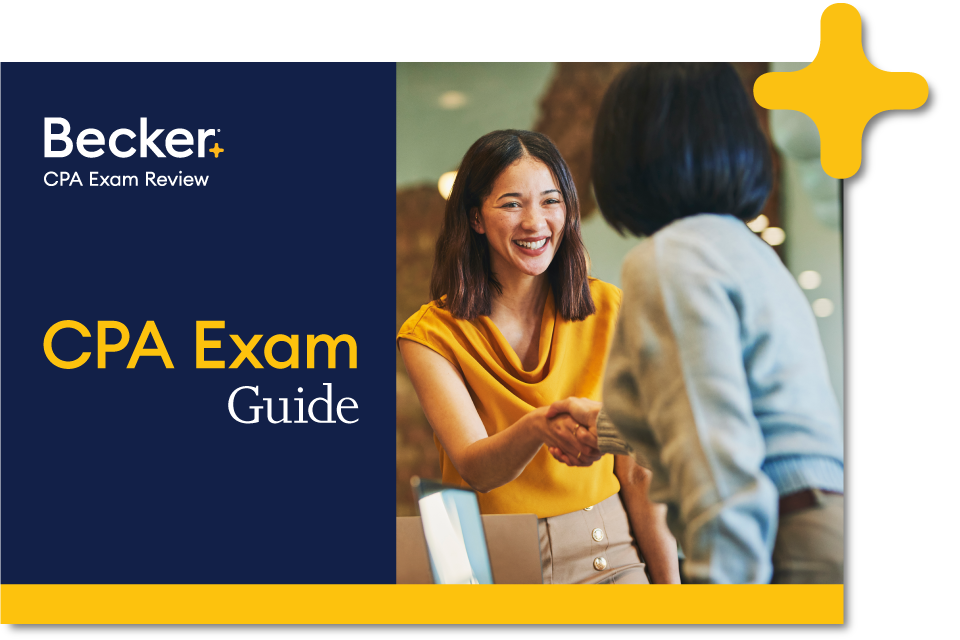
Knowing how to interview is crucial in today’s job market. Whether you’re a new graduate or an experienced professional, understanding how to prepare for an accounting job interview can help you build an effective strategy to stand out from the competition. Every company and interview are unique and should be approached as such, but you can plan around the key components that most interviews share.
Summary
Acing an accounting job interview requires a strategic approach that involves defining career expectations and optimizing your resume to land the meeting, thorough preparation through company and job research, professional execution during the interview, and careful follow-up and negotiation after receiving an offer, with a CPA license often boosting competitiveness.
Table of Contents
- How can I get an accounting job interview?
- How do I prepare for my accounting job interview?
- How do I ace my accounting job interview?
- What do I do after my accounting job interview?
- Help your resume stand out with a CPA license
How can I get an accounting job interview?
When planning your job search, take the time to do your research and define your expectations. This will better equip you to apply for positions that meet your criteria and needs. It will also help you in the interview, as you will be able to articulate how your education, knowledge, skills, and experience will benefit the company.
How do you do this?
Define search parameters
Determine what you are looking for in a job and match it with offerings that fit your interests and skills. This will also help you determine whether you are looking for a short-term position or one that can help you establish and grow in your career. When considering the industry, it is important to decide whether you want to work in a Big 4 vs mid-tier accounting firm, public or private company, and if there are niche areas that interest you.
Determine the type of position you're seeking
If you have been working in the industry for some time, you will not look for an entry-level position. Your experience should dictate the type of position you are seeking. Be realistic in your qualifications; you know your level of expertise, education, and experience holding responsibilities or managing other team members. This should help determine your desired title and salary expectations.
Be realistic in your salary expectations
Do your research for the position you’re seeking, the area where it is located, and the types of responsibilities that will be expected of you. This should help you determine a basis for salary negotiations. Be sure to factor in other types of benefits, such as vacation, sick time, health insurance, and whether or not the company has a retirement plan. You don’t want to accept a pay lower than you deserve, but your expectations should be realistic and aligned with industry standards.
Consider your career goals
Is this a steppingstone for you, or do you expect to be in that same position over five years? If it is a steppingstone position, how long will you give yourself to become proficient in that role, and have you researched the next step? It is important to list your goals and objectives moving forward so you have a clear plan of direction in place.
Create a resume that catches the eye of recruiters
Remember that you have to earn an interview with your potential employer. This means that your CPA resume must be clean, succinct, and well-planned to highlight the skills and experience most relevant to the job position. With a clear understanding of the role you seek and a fair alignment with your experience and qualifications—all clearly outlined in a stand-out resume, you’ll be able to land an accounting job interview that gets your foot in the door for a great opportunity.
How do I prepare for my accounting job interview?
Once you have gotten past the initial screening and a recruiter has contacted you, it’s time to prepare. You should go into your interview confident in your knowledge of the company, the job position, what you bring to the table, and where you want to take your career.
Use this checklist to make sure that you’re fully prepared:
| 1. Explore the company’s website. | You should know all about the company’s brand, mission, values, services, and how your desired position ladders up to support these things. |
| 2. Scroll through the company’s social media. | You’ll learn a lot about an organization by reading what it posts about itself—not only the services or products it promotes, but also the brand’s personality and core tenets. |
| 3. Read and re-read the job posting. | You should understand the position so well that your nerves won’t get in the way of your ability to speak toward specific skills and responsibilities listed in the job description which align with your background. |
| 4. Consider what you offer to the position and company. | Be ready to speak about how you’re a great fit for this position, not just because of the particular skills you bring to the table, but also because of your values in alignment with the company’s, your work style and cultural fit, and how you see yourself groing in your career. |
| 5. Prepare questions to ask your interviewer. | Consider what you want to know about the position and the company and prepare thoughtful questions to ask during your interview. This will also show interest on your part and investment in the position and your fit within the company. |
| 6. Be ready to answer common accounting interview questions. | Be ready with answers to the questions that interviewers often ask. Some common interview questions include:
|
| 7. Practice saying it out loud. | It may feel awkward at first, but talking through all these points at loud to yourself before the interview will help you feel more comfortable gathering your thoughts during your actual interview. |
How do I ace my accounting job interview?
You’ve done your homework in preparation and now it’s time for your interview. Here are some ways to make sure that you’re set up for success:
Get there early
You should arrive at least ten to fifteen minutes early before your interview is scheduled to begin. Employers notice the little things, and being early signals that the interview is important to you.
Turn off your phone
It is rude and distracting to have your phone going off during an interview. Turn it off or put it on silent.
Be pleasant
Smile and have a firm handshake. Do not speak negatively about your current position and maintain your composure no matter how you think the interview is going.
Be aware of and use body language
Make eye contact, keep your posture erect, and do not fidget. The more you smile, the better the interview may turn out. This puts you both at ease.
Be direct
Be direct when answering questions, but remain professional. Be specific and honest. This is your time to “pitch” yourself. No one can sell you better than YOU. Do not overplay your skill set, but capitalize on your abilities. If you have been out of work, be ready to discuss it. Also be ready to discuss your perceived failures. Use concrete examples and be confident.
What do I do after my accounting job interview?
Following up after your interview is a key component to increase your chances of success. You should write to your interviewer in the days following your meeting with a “thank you.” Write specifically to the interviewer (not a general template), and feel free to include your continued interest in the position and willingness to provide further information or documentation, if needed.
If you receive an offer, review the terms in writing. If there are any discrepancies, now is the time to get them resolved before you accept. This is also the time to negotiate any of the terms you disagree with, especially as it relates to compensation.
Help your resume stand out with a CPA license
If you’re an accounting professional but don’t have your CPA license, it’s worth considering how this professional credential can greatly increase your likelihood of getting the job you want. You’ll be able to perform more services and take on greater responsibilities, plus you’ll have demonstrated a high level of expertise, dedication, and work ethic. A CPA license may also open higher paying positions and make your resume more competitive against other applicants.
Get started on your journey towards CPA licensure by exploring Becker’s free CPA Exam Guide!










